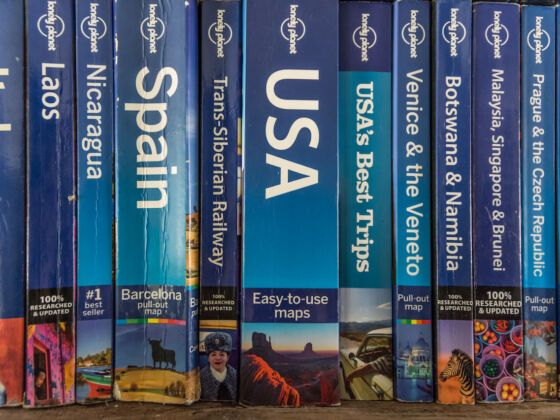The news of Lonely Planet’s NC2 Media buyout didn’t affect me at first. “Another print company downsizing because people have replaced books with cell phones and tablets — big deal?”
Most of the travelers I know say they hate guidebooks anyway, because they’re cliché, consumer-based, and somehow don’t authenticate a real travel experience. Maybe this downsizing isn’t such a cause for alarm.
